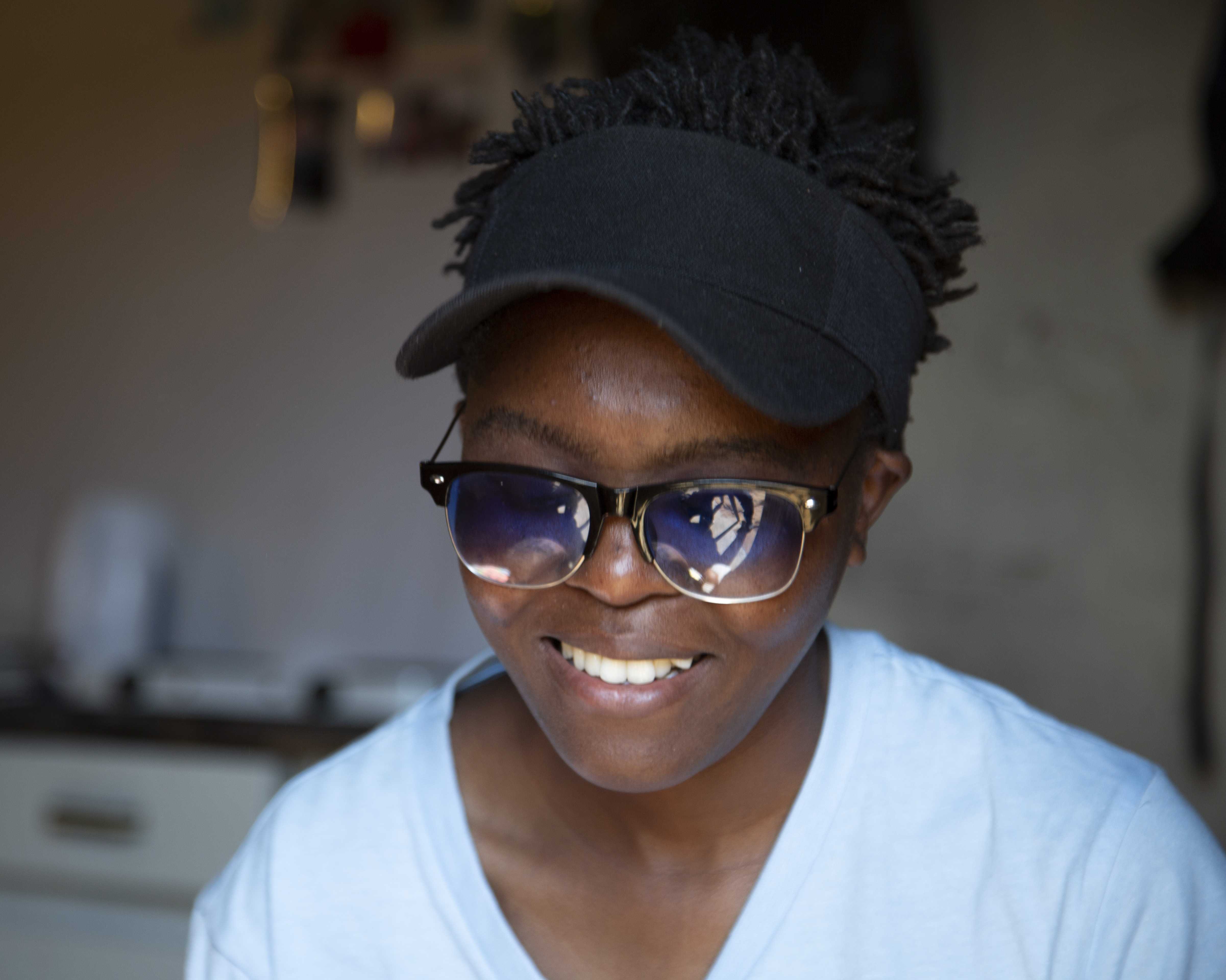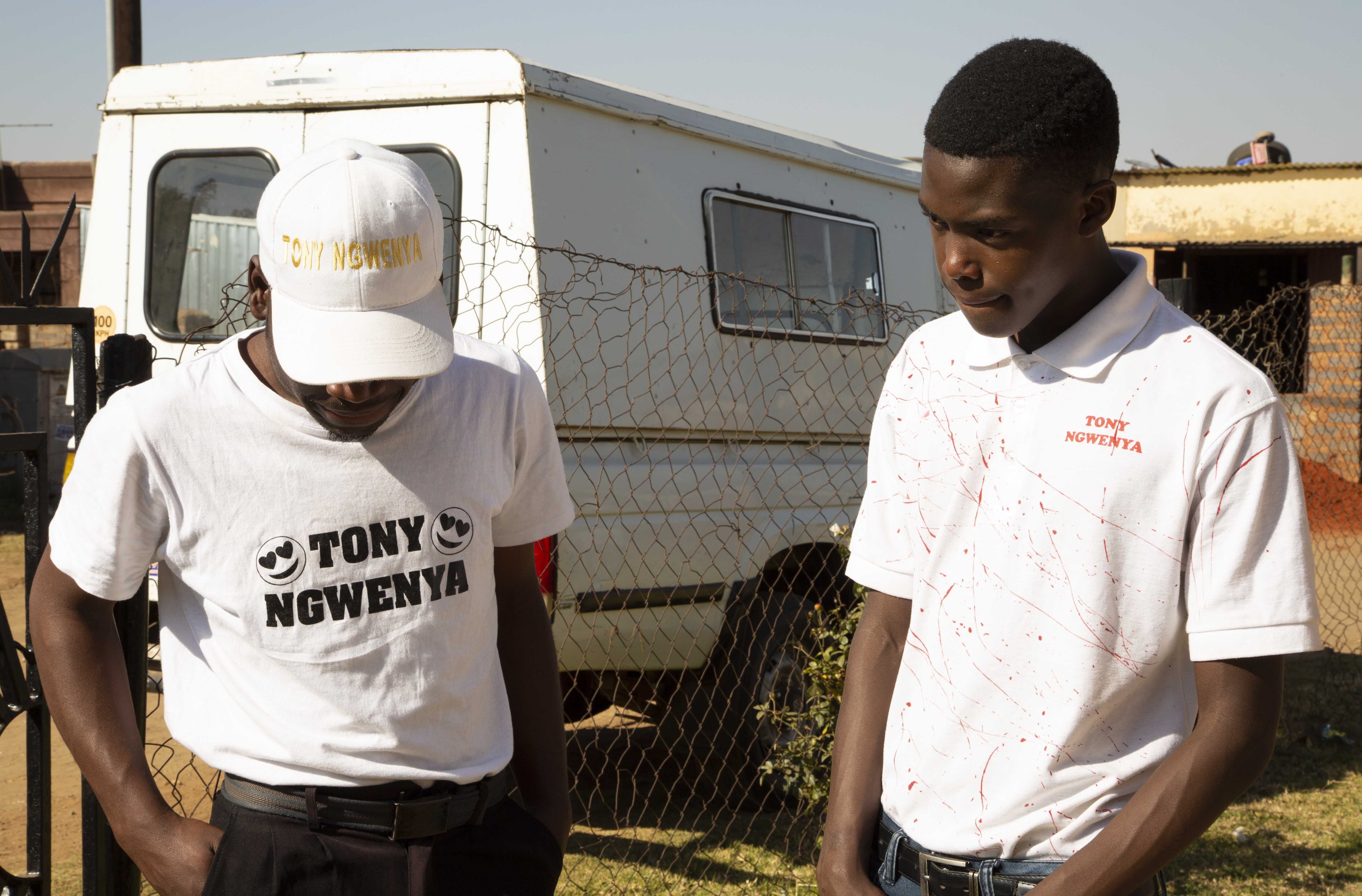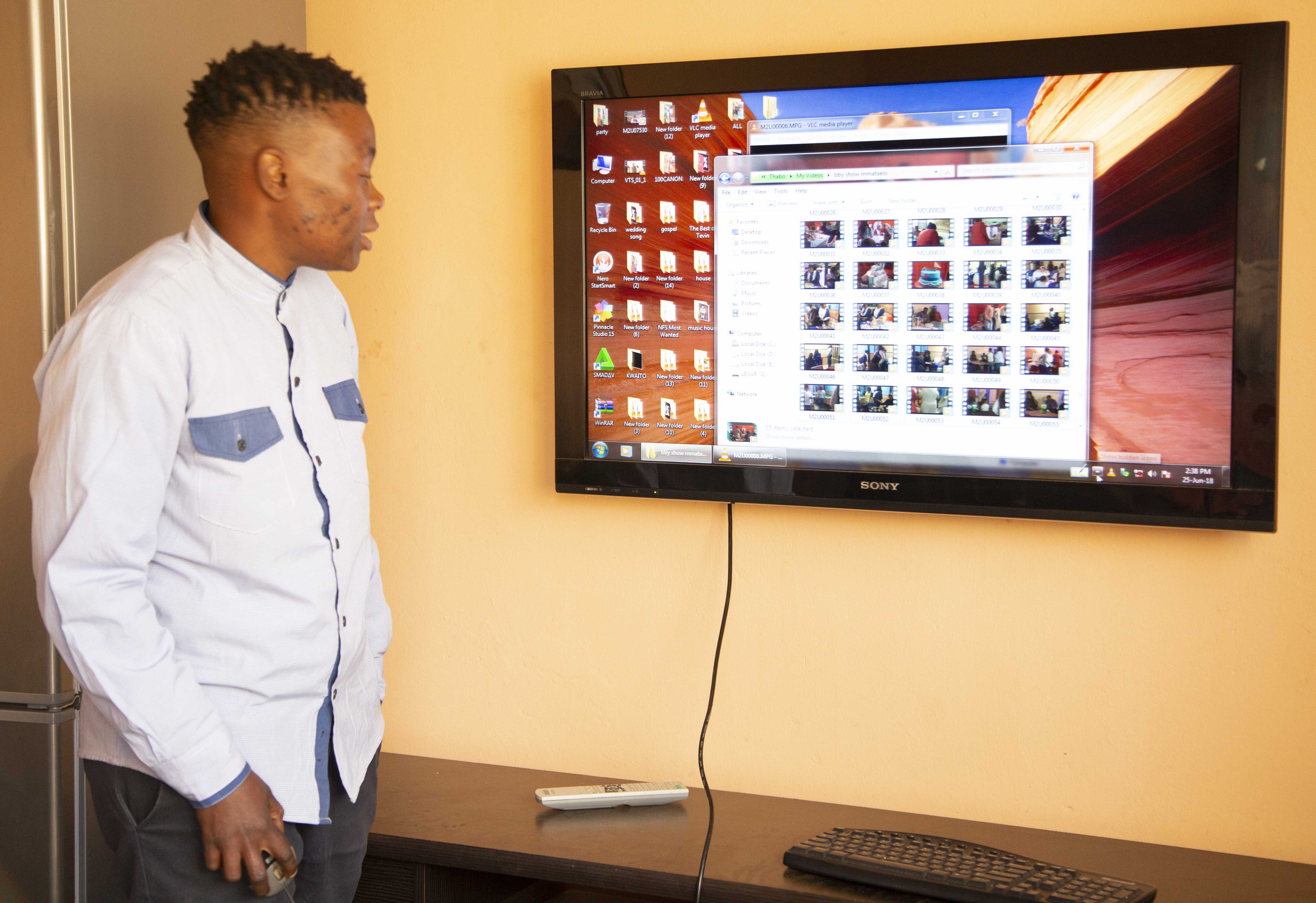Kwa-Thema, South Africa — Lebo Tshoma, a 24-year-old woman living in Kwa-Thema, a township east of Johannesburg, runs a printing business out of her one-room metal shack that she shares with her 3-year-old daughter.
Tshoma’s main source of work is designing and printing T-shirts. She currently does not have an industrial printer, so she acts as an agent between the printer and the person who wants the prints. She has done work for a large South African marketing company as well as for LGBTQ organizations.

Tshoma also identifies as a lesbian. For the young entrepreneur, that means working twice as hard to keep her business alive.
“The problems that we face is acknowledgement and being trusted,” Tshoma said. “For people who are very religious, when you come out as a lesbian, they see you as this demonic person or a person that is possessed by demons. Help just doesn’t come fully as it would to a heterosexual person.”
In life as in business, Tshoma has struggled as a lesbian in South Africa. The Equality Clause in the South African Bill of Rights makes it illegal to unfairly discriminate against someone because of their sexual orientation. Despite progressive laws, lesbians still live in fear of crimes like corrective rape, a hate crime conducted with the belief that it will convert lesbians to heterosexual women.
Tshoma herself is a sexual assault survivor. She has been kidnapped and raped. Both crimes went unsolved by police.
“It happens mostly to lesbian women,” Tshoma said. “Sometimes they ask you, ‘How can you be raped when you dress like guys?’ In people’s eyes, you’re a guy. That’s just one of the problems that we face.”
Tshoma said she was kidnapped while working at her job at a large clothing store in Johannesburg. She was ambushed while locking up the store, and then for three days, was forced by her kidnappers to deliver drugs.
“On our way to deliver in Pretoria, that’s where I managed to run and get to the police station,” Tshoma said.
After reporting the kidnapping, Tshoma said she was held at the police station for three days.
“They kept on saying, ‘We’re going to take you to Jozi,’ but I sat there for three days,” Tshoma said. “I had to come back without the case, and there was no proceedings about the case whatsoever.”
Many members of the LGBTQ community in South Africa, especially in the townships, residential areas created by the apartheid government for people of color, often do not report these crimes because they know nothing will be done.
“They sometimes take lesbian cases lightly when you’re there to report a case,” Tshoma said. “They write everything down, and then when you’re gone, you’re gone, and then it’s done.”
Tshoma said this was her experience after she went to police after her sexual assault, too.
“I reported my case, and then I went back to follow on it,” Tshoma said. “They said they couldn’t find my document. For the case, that was just the end of it.”
But Tshoma persevered, and despite these experiences and other difficulties that come with being a lesbian business owner, she has acquired loyal customers who love her art and designs.
Tony Ngwenya, 21, and Sipho Maphosa, 21, are musicians in Kwa-Thema who use Tshoma’s printing business to brand themselves. After struggling to find jobs following their graduation from high school, the young men found they could sing and deejay at parties and events in order to make a living. They use Tshoma’s work for their marketing and promotion.

“There is no T-shirts with a paint like this,” Maphosa said. “[Tshoma’s] work is awesome, and beautiful.”
Like Tshoma, Carol Magudulela, a 32-year-old lesbian and entrepreneur who lives in Kwa-Thema, is upfront about her sexuality.
Magudulela created her own photography and videography company in 2001. She began her business in order to support herself and her 4-year-old sister after their parents died. She learned photography from her older brother who also runs his own business.
“I wanted to make money for my small sister,” she said.

Magudulela films, takes photos and edits her material using photo and video editing software in her home. She also provides designs and prints for DVD covers and gift items like coffee mugs.
Magudulela said she makes sure her customers knows she is a lesbian, in part so they are not surprised when she shows up at an event looking “like a man.”
“They do not like lesbains and gays,” Magudulela said of some of her customers. “That is a sin. I tell them, ‘Do not judge. You are not God.’ But, there are many people who respect me and my work.”
In addition to her photo and video business, Magudulela also fixes cell phones. She’s known as a whiz in her community. She can fix screens, unlock phones, repairs broken devices, all in a matter of minutes. The hardest part about the job is getting people to pay her. Sometimes she’ll estimate the job will take longer than it does in order to give the customers time to go home and get their money to pay her.
When asked if she enjoys what she does, Magudulela smiled.
“I like this very much,” Magudulela said. “I was doing physics at school. I can shoot and edit video, and photos. I can also fix cell phones. I can fix anything.”















































